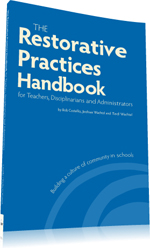News & Announcements
- Details
- Written by Joshua Wachtel
The following story appeared at the City of Lima's web page. The original story in Spanish can be found here. Thanks to Google Translate for translation!
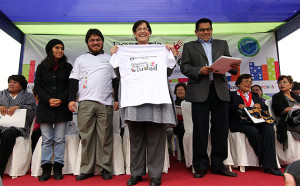 Mayor Susana Villarán holds up a t-shirt reading "Give Back to Your City" at the program presentation
Mayor Susana Villarán holds up a t-shirt reading "Give Back to Your City" at the program presentation
The Metropolitan Municipality of Lima has launched a program called "Give back to your city" in order to resolve conflicts in neighborhoods, emphasizing harmony and peaceful coexistence through healthy and fair treatment between the community and authorities.
This program, which was introduced by the mayor of Lima, Susana Villarán, in the "Plaza of the Fence" in Barrios Altos, seeks to raise public awareness of the importance of using restorative practices as a strategy to improve coexistence and citizen security.
It also involves reducing violence in the community, improving relations between citizens and repairing damage done when it is done through rebuilding, reconciling, reintegrating and living fully in community.
- Details
- Written by Joshua Wachtel
You can read Ted Wachtel's first blog post at Huffington Post, titled "There Are Proven Tools to Make Schools Safe, We Just Have to Use Them." Be sure to comment and share!
- Details
- Written by Joshua Wachtel
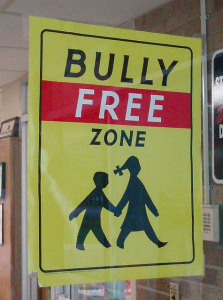 photo by Eddie~S at Flickr Creative Commons
photo by Eddie~S at Flickr Creative Commons
The following is a letter by IIRP president Ted Wachtel to the editor of EdWeek which was published on June 5, 2012 (subscription required).
To the Editor:
Bullying in schools is a deadly serious issue. It certainly warrants the copious media attention it
has been receiving lately, including in Education Week ("The Semantics of Mean," March 21, 2012). In response to the crisis, anti-bullying laws and programs are proliferating across the United States, but I propose that bullying should be considered in the larger context of wholeschool culture and interpersonal relationships.
Schools employing "restorative practices" achieve dramatic reductions in bullying and violence by proactively providing opportunities for students to get to know one another. Becoming an integral part of school life, restorative circles and other strategies address underlying tensions, fostering empathy and connectedness. Restorative practices improve social bonding among diverse individuals and create cooperation and community.
- Details
- Written by Joshua Wachtel
Here's something we posted a few years back that I was reminded of today as someone else reposted it recently. It's footage of a conference for a group of girls in Albany who restored their relationships after a pretty serious fight. I think most of the people in the room were surprised that this would be possible through talking it out, but the conference format truly does facilitate that type of useful and constructive dialog.
- Details
- Written by Joshua Wachtel
For your reading pleasure, we now have the following titles available in Amazon Kindle, Apple iBooks and Barnes & Noble Nook formats, for instant delivery and all priced at just under ten US dollars.
The Restorative Practices Handbook An introduction and guide to restorative practices covering practical techniques, tips and strategies, implementation guidelines and real-world stories of restorative practices in action.
- Details
- Written by Joshua Wachtel
 from the Patiot-News fileThis story from the Harrisburg Patriot-News by M. Diane McCormick discusses Susquehanna Township's decision to adopt IIRP's Whole School Change Program and quotes IIRP trainer Steve Korr:
from the Patiot-News fileThis story from the Harrisburg Patriot-News by M. Diane McCormick discusses Susquehanna Township's decision to adopt IIRP's Whole School Change Program and quotes IIRP trainer Steve Korr:
In a climate marked by parents’ vocal concerns about bullying and school discipline, Susquehanna Township School District adopted a program meant to build personal connections that minimize in-school confrontations and disruptions.
In April, a district mother asked the school board to review its bullying policies because her daughter had missed four days of school because of bullying. On May 9, a special school board meeting on school discipline — a meeting notable for shouting matches among board members, according to reports — drew parents who said their children are being or have been bullied.
- Details
- Written by Joshua Wachtel
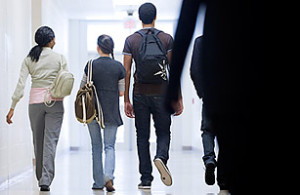 Getty Images, posted at Time.comAn article called "Do 'Zero Tolerance' School Discipline Policies Go Too Far?" by Sarah Carr of the Hechinger Report appeared at Time.com last week. On page 4 of the 6 page story there was this discussion about City Springs Elementary-Middle School in Baltimore, Maryland, where IIRP has worked extensively:
Getty Images, posted at Time.comAn article called "Do 'Zero Tolerance' School Discipline Policies Go Too Far?" by Sarah Carr of the Hechinger Report appeared at Time.com last week. On page 4 of the 6 page story there was this discussion about City Springs Elementary-Middle School in Baltimore, Maryland, where IIRP has worked extensively:
At City Springs Elementary-Middle School, Alonso's push coincided with Principal Rhonda Richetta's decision to introduce a "restorative justice" approach to school discipline: instead of automatically suspending students when there is a problem, staff and students sit together in circles to talk through many thorny and contentious issues. Often, the end result is a punishment tailored to the specific crime.
- Details
- Written by Joshua Wachtel
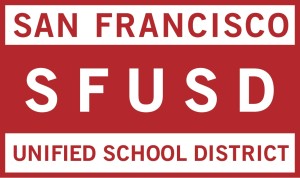 The San Francisco Unified School District Restorative Practices Team recently issued a newsletter looking at their experience changing school climate with restorative practices. Included are some statistics of the number of people they've trained along with staff testimonials. Included is a short interview with principal Paul Jacobsen at Rosa Parks Elementary School, which is currently in Year One implementation as a Restorative Practices Demonstration School.
The San Francisco Unified School District Restorative Practices Team recently issued a newsletter looking at their experience changing school climate with restorative practices. Included are some statistics of the number of people they've trained along with staff testimonials. Included is a short interview with principal Paul Jacobsen at Rosa Parks Elementary School, which is currently in Year One implementation as a Restorative Practices Demonstration School.
- Details
- Written by Joshua Wachtel
Are you interested in creating a culture of community and connection on your campus? What tools can be used to live out the mission and values of your university actively every day? How can you engage students in addressing decisions they make as opportunities to learn? What is Restorative Justice (RJ) and how can you bring the principles and tools of RJ to your campus? This manual was developed to help answer these questions and provide a framework to bring restorative justice to your Institution of Higher Education. This framework is based on the impressive Restorative Justice work that is being led by Administrators and RJ Practitioners utilizing RJ principles and tools at 9 prestigious colleges and universities across the United States.
- Details
- Written by Laura Mirsky

A new book from ASCD Publications, How to Create a Culture of Achievement in Your School and Classroom, by Douglas Fisher, Nancy Frey and Ian Pumpian, includes a section on restorative practices, largely informed by the IIRP book, The Restorative Practices Handbook for Teachers, Disciplinarians and Administrators.
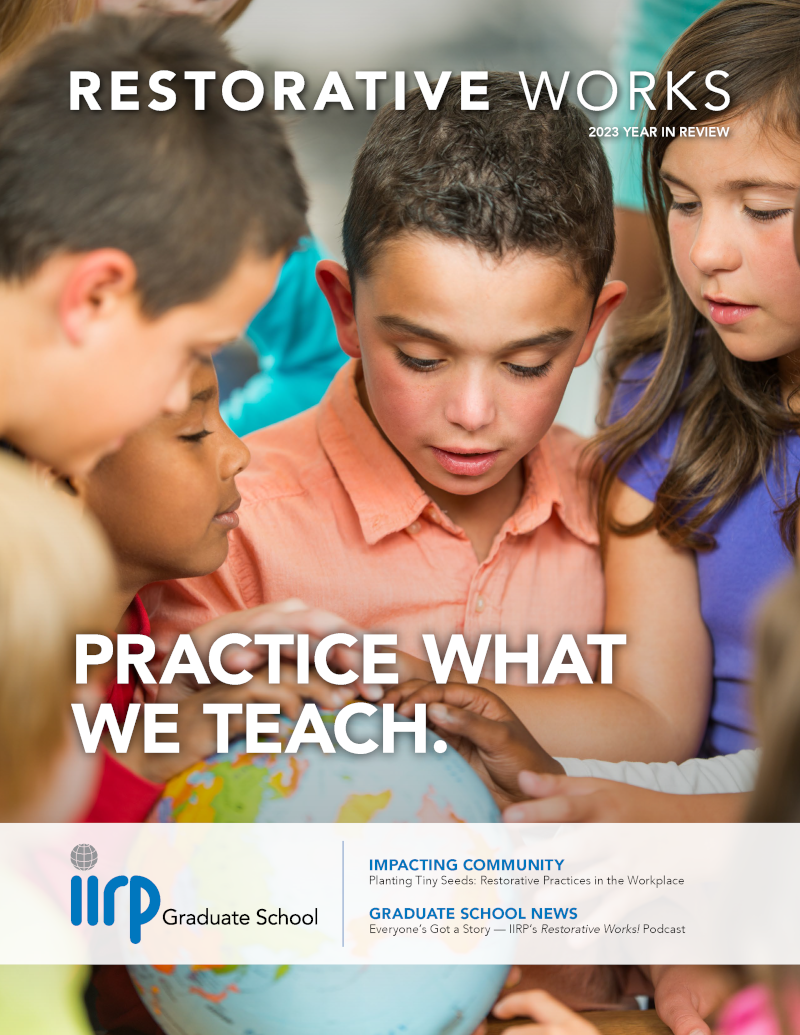
Restorative Works Year in Review 2023 (PDF)
All our donors are acknowledged annually in Restorative Works.

